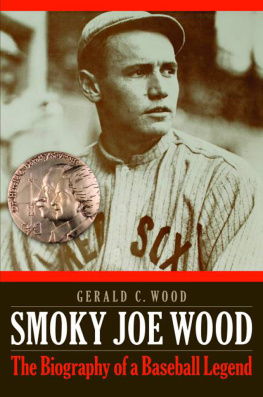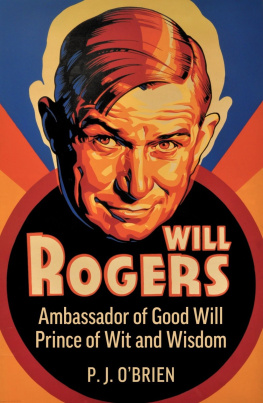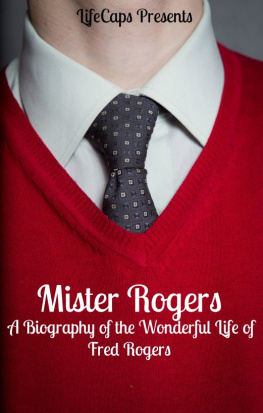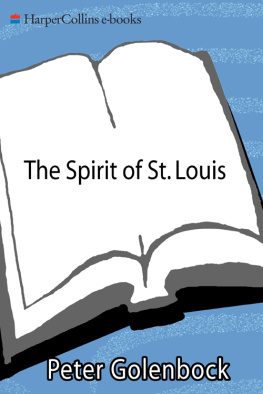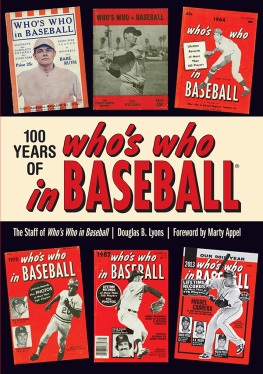Hornsby Rogers - Rogers Hornsby: a biography
Here you can read online Hornsby Rogers - Rogers Hornsby: a biography full text of the book (entire story) in english for free. Download pdf and epub, get meaning, cover and reviews about this ebook. City: New York;United States, year: 1995, publisher: Henry Holt and Co., genre: Detective and thriller. Description of the work, (preface) as well as reviews are available. Best literature library LitArk.com created for fans of good reading and offers a wide selection of genres:
Romance novel
Science fiction
Adventure
Detective
Science
History
Home and family
Prose
Art
Politics
Computer
Non-fiction
Religion
Business
Children
Humor
Choose a favorite category and find really read worthwhile books. Enjoy immersion in the world of imagination, feel the emotions of the characters or learn something new for yourself, make an fascinating discovery.

- Book:Rogers Hornsby: a biography
- Author:
- Publisher:Henry Holt and Co.
- Genre:
- Year:1995
- City:New York;United States
- Rating:4 / 5
- Favourites:Add to favourites
- Your mark:
- 80
- 1
- 2
- 3
- 4
- 5
Rogers Hornsby: a biography: summary, description and annotation
We offer to read an annotation, description, summary or preface (depends on what the author of the book "Rogers Hornsby: a biography" wrote himself). If you haven't found the necessary information about the book — write in the comments, we will try to find it.
Rogers Hornsby: a biography — read online for free the complete book (whole text) full work
Below is the text of the book, divided by pages. System saving the place of the last page read, allows you to conveniently read the book "Rogers Hornsby: a biography" online for free, without having to search again every time where you left off. Put a bookmark, and you can go to the page where you finished reading at any time.
Font size:
Interval:
Bookmark:
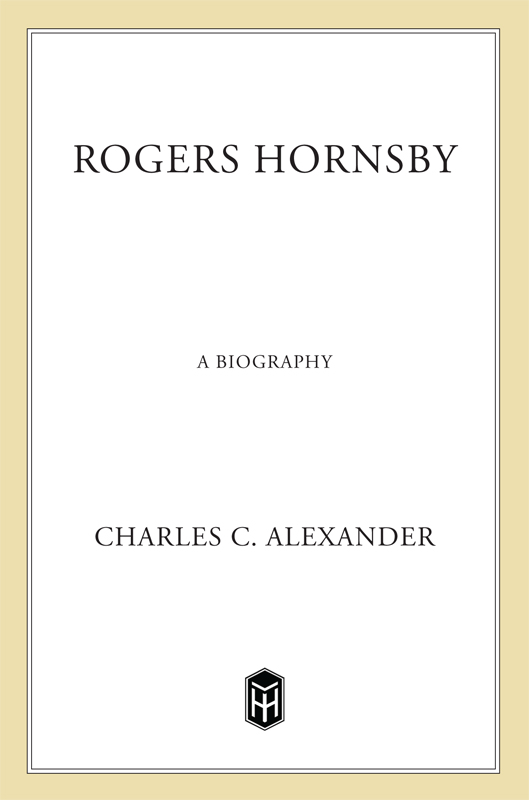


The author and publisher have provided this e-book to you for your personal use only. You may not make this e-book publicly available in any way. Copyright infringement is against the law. If you believe the copy of this e-book you are reading infringes on the authors copyright, please notify the publisher at: us.macmillanusa.com/piracy.
Contents
For Don and Mary Jo Pickens and Joanne Smith, and to the memory of Eugene C. Murdock (19211992)
Acknowledgments
Of the many people in different parts of the United States who helped me in my efforts to discover and understand Rogers Hornsby, I wish especially to thank the staffs of the National Baseball Library, Cooperstown, New York; Sporting News Archives, St. Louis, Missouri; Austin History Center, Austin, Texas; Office of Records of the Clerk of the Circuit Courts, City of St. Louis, Missouri; County Clerks Office, Runnels County, Ballinger, Texas; and Library of Congress, Washington, D.C. Brad H. Hornsby, Murfreesboro, Tennessee; Ann Hornsby Rice, McLean, Virginia; Rogers Hornsby III, Denison, Texas; Fred Graham of the Texas Sports Hall of Fame, Dallas, Texas; Thomas H. Smith, historian of the Texas Rangers baseball franchise, Arlington, Texas; George Parkinson, chief, Archives-Library Division, Ohio Historical Society, Columbus, Ohio; and Fred Schuld, Macedonia, Ohio, also provided important assistance. A number of others who were kind enough to share their time and memories of Hornsby are cited in the notes and bibliography; I thank them here collectively.
As always, Warren F. Kimball, Robert Treat Professor of History, Rutgers University, and one of my oldest friends, was willing to read my work cheerfully and perceptively. Steven F. Gietschier, Director of Research for the Sporting News, and William M. Kimok of Ohio University also gave the manuscript close and constructive readings. William B. Strachan of Henry Holt and Company has been both a professional associate and a friend, and so has Gerard F. McCauley, my longtime literary agent.
Finally, my daughter, Rachel C. Alexander, D.V.M., continues to bring joy into my life, as does her mother, the altogether remarkable JoAnn Erwin Alexander.
Athens, Ohio
November 1994
I have never been a yes man.
Rogers Hornsby, 1950
Prologue
Beaumont, Texas, Summer 1950
At the bottom half of each inning, the stout, silver-haired manager of the Beaumont Roughnecks would emerge from the first-base dugout, trundle across the diamond, take his place in the third-base coaching box, and ritually clap his hands to exhort the leadoff Roughneck batter. Of course I knew who he was. The name Rogers Hornsby was a familiar one for anybody who followed baseball closely; as a fourteen-year-old who scanned box scores in the local daily newspapers, absorbed the weekly contents of the Sporting News, and studied how-to-play books in an effort to improve my own decidedly limited skills, I knew about all the sports great men. I could quote career and season statistics for contemporaries such as DiMaggio, Musial, Williams, Kiner, and Feller, as well as for Cobb, Ruth, Young, Johnson, Wagner, Gehrig, and other past heroes.
Rogers Hornsbys achievements were among the most familiar and imposing: a .358 lifetime batting average (second only to Cobbs) in twenty-three major-league seasons (191537); a .424 average in 1924 (highest for the twentieth century); two other .400-plus seasons; seven National League batting titles; player-manager of the St. Louis Cardinals in 1926 when they defeated Babe Ruth and the New York Yankees in a legendary World Series. By nearly everybodys estimation, Hornsby was the foremost right-handed hitter over the first century of American baseball.
Studying him from the grandstand behind third base, where I sat with my parents through something like twenty-five games that summer, I couldnt figure why this famous person had ended up back in his native Texas, managing at Beaumont, of all places. With a population of about 100,000, Beaumont was the smallest city in the Texas Leaguea Class AA circuit two levels below the majors. After all the glory Hornsby had gained and all the money he must have earned in baseball, what circumstances could possibly have led him to Beaumont?
Not that we werent delighted to have Hornsby managing the local team. After last-place finishes for three straight seasons, wed come to expect little from the players the New York Yankees assigned to their Beaumont farm club. Yet in August and early September, Hornsbys Roughnecks astonished everyone by surging into first place and staying there, finishing in front of the Fort Worth Catsa perennial powerhouse stocked with talented youngsters from the Brooklyn Dodgers farm system. It was enough to make the summer of 1950 one of the best times of my life.
When the pennant was almost clinched, local business and civic leaders organized a Rogers Hornsby Day, with appropriate ceremonies to take place before that nights game. A crowd of 6,259, close to capacity, was present at Beaumonts Stuart Stadium as Mayor Otho Plummer thanked Hornsby on behalf of the city and then presented a Texas Stetson and the keys to a new black Cadillac sedan. Hornsby took the hat (but wouldnt put it on), glanced at the Cadillac, and then grunted into the microphone, Its nice. Now get it outta here so we can start the game.
A barely audible reactiona mixture of surprise, disappointment, and dismaymoved through the crowd. My parents, who always put considerable store in appearances, simply didnt know what to make of Hornsbys graceless response to a genuine, openhanded expression of civic gratitude.
Apart from what could be learned in official baseball records, we knew little about Hornsbylittle about the succession of trades and dismissals that marked his career and what in effect was a thirteen-year exile from the major leagues. Had we known Hornsby as many people in the little universe of Organized Baseball knew him, we might have expected just about what we all got that night in Beaumont.
More than twenty years earlier, the venerable St. Louis sportswriter John B. Sheridan observed that Hornsby is, as the French say, deficient in the social relation. Hornsby can be cold, indifferent, even rude. As cold as tempered steel was the way another acquaintance described him. He cares little for what anyone says, and still less for what they think. Travis Jackson, Hornsbys teammate on the 1927 New York Giants, remembered that he had a good way of making everybody irritated, while Les Tietje, who pitched briefly for the St. Louis Browns when Hornsby managed them in the mid-1930s, was rather more explicit: Rogers Hornsby. Now there was a real p-r-i-c-k.
Cold, gruff, aloof, lonersuch adjectives show up with remarkable frequency in contemporary recollections of Hornsby. Acquaintances also noted his extraordinarily clear, blue eyes: steel blue, said most people; large tawny eyes, not unlike a mountain lions, recalled a former teammate; go to hell eyes, in the journalist Westbrook Peglers phrase. Hornsby was also, by his own admission and nearly everybody elses account, bluntly honest and utterly lacking in tact.
I have never been a yes man, he declared during spring training with his 1950 Beaumont team. When a man asks me a question I believe he wants me to give him an honest answer no matter who it hurts. But some of the owners dont want that. They want the answer that they want to hear. But thats not the way I was brought up. More than all my honors in 48 years of baseball, he insisted less than a year before he died, Im proudest of the fact that I am not a baseball hypocrite. Ive never taken back anything I ever said and Ive never failed to say exactlyand I mean exactlywhat I was thinking. To everybodyfrom the owner to the bat boy. Hornsby, a longtime friend believed, was as addicted to the truth as a drunk was to his bottle.
Font size:
Interval:
Bookmark:
Similar books «Rogers Hornsby: a biography»
Look at similar books to Rogers Hornsby: a biography. We have selected literature similar in name and meaning in the hope of providing readers with more options to find new, interesting, not yet read works.
Discussion, reviews of the book Rogers Hornsby: a biography and just readers' own opinions. Leave your comments, write what you think about the work, its meaning or the main characters. Specify what exactly you liked and what you didn't like, and why you think so.


